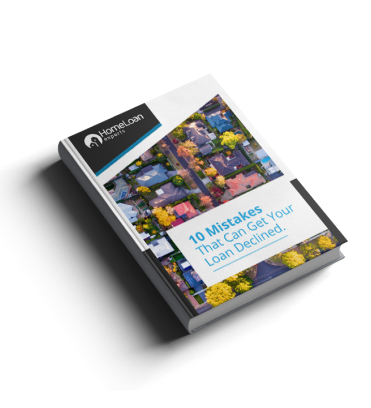You know what you are supposed to do before you take a step towards applying for a mortgage – research the home prices, save up for a deposit. The things you shouldn’t be doing, however, are rarely talked about.
You can improve your chances of getting the home you want by avoiding the mistakes that can reduce the amount of financing you can obtain, increase the interest rate on your mortgage, or lead a lender to reject your application.
We’ll let you in on six major errors our Experts say you should stay away from when you’re planning to apply for a mortgage.
10 Mistakes That Can Get Your Loan Declined
Getting approved for a home loan is not always a straightforward process. Know what NOT TO DO to get your loan approved in the first attempt.

6 Things To Avoid Before Applying For A Mortgage
Switching Jobs
A lender needs to be assured that you have a steady income and you can bear to cover a home loan repayment bill each month. This is why at least two years of steady employment greatly enhances your mortgage application. On the other hand, your chances of qualifying for a mortgage are compromised when you switch jobs just before applying. Of all things you should not be doing before preparing your mortgage application, switching jobs is near the top of the list.
Skipping Bill Payments
Your payment history usually accounts for 35% of your overall credit score. This means even one late payment is enough to bring your score down by 50 points or more – enough to cost you the home you want.
Lenders pay close attention to the credit scores of applicants. Focus on improving your score and maintaining it before you apply for your loan.
Not paying bills on time shows lenders that you may be unable to make timely mortgage repayments as well.
Making Major Purchases
Buying a car, a refrigerator or any major item is not the best move before applying for a mortgage. Having genuine savings is one of the first things lenders require from borrowers and making a major purchase can cut into your cash on hand. Taking out a loan or using your credit card to make a purchase is an even bigger red flag to a lender.
Keep your money. Besides your genuine savings and deposit, you’ll also need money for insurance and other costs.
Stacking Up Debts
Taking on multiple debts before you apply for a mortgage will increase your debt-to-income ratio, which is your total debt, including the potential home loan, divided by how much you earn annually. The higher the DTI, the lower your chances of a lender approving your loan.
If you have a DTI of 6 or more – total debt at least six times your annual income – lenders will consider you a risky borrower.
Shutting Down A Credit Card Account
In many situations, closing a credit-card account is a smart move but not when you need to apply for a mortgage.
When you get rid of a credit card, your amount of available credit is reduced. This can hurt your credit score, as your debt-to-credit ratio could skyrocket. Especially if you have a huge credit card debt, closing the account will not help your credit score but will bring it down instead.
Agreeing To Co-Sign On A Loan
With your mortgage application at stake, think twice before you agree to co-sign a loan for a family member.
When you co-sign, you agree to become partially responsible for the debt the borrower is liable to pay. This means a big dent in your credit score if they don’t make those repayments on time.
Should You Stick To One Lender While Considering Applying For A Mortgage?
It might seem easier to stick to one lender and research what they prefer and what they don’t. However, this would confine you to that lender’s policies.
Instead, go through different lenders’ policies, research your options, find the best interest rate possible and make sure to pick the offer that fits your mortgage needs the best.
Here is where an expert mortgage broker comes in handy. Home Loan Experts has 50+ lenders in its panel, which you can peruse before you apply.
Your broker will make sure you apply with the lender where you have the best chance at winning approval for your home loan.
Should You Apply For Pre-Approval First?
If you are planning to win your dream property at an auction, you should apply for pre-approval on a loan first.
Winning at an auction does you no good if your application is declined later.
Pre-approval usually lasts for three months, but if you want it extended, there are ways we can help you.
What Is The Approval Process With Home Loan Experts Like?
- Complete and sign our short application form.
- Provide evidence of your income, savings, and debts, such as credit cards and other loans.
- We’ll complete a preliminary assessment and recommend several suitable lenders and loans.
- We’ll lodge your application with the lender you’ve chosen.
- The lender will complete an assessment of your situation and provide pre-approval.
From lodging your pre-approval application to helping you find the best rates, Home Loan Experts will do it all. Read our detailed page on mortgage pre-approval for more insights on how the process is different during COVID-19 restrictions.
Speak To An Expert
With everything there is to consider, having an expert mortgage specialist by your side helps heaps.
Home Loan Experts can help you pick the right loan option and evaluate your home loan situation for the best possible outcome. Give us a call on 1300 889 743 or fill in our free online enquiry form.
